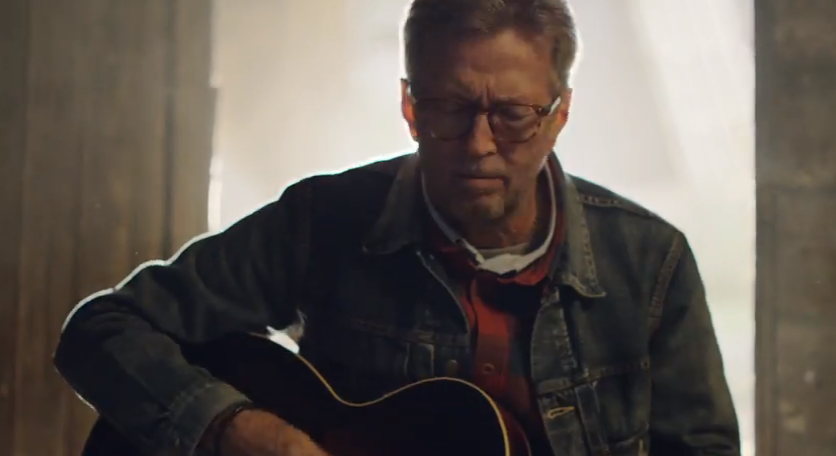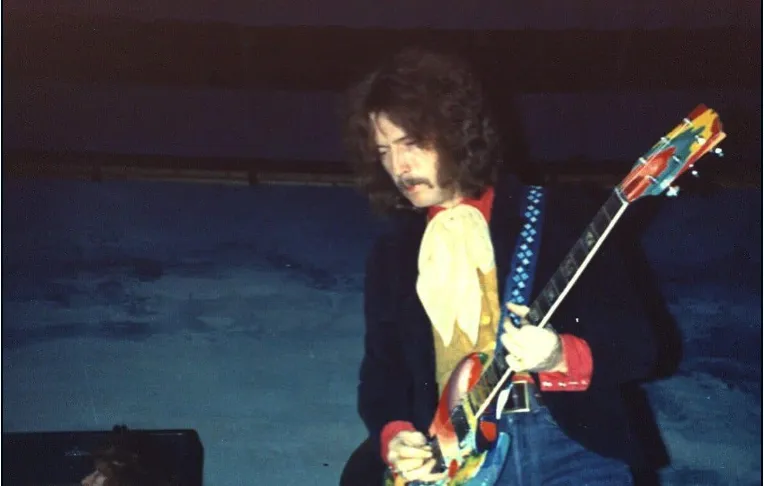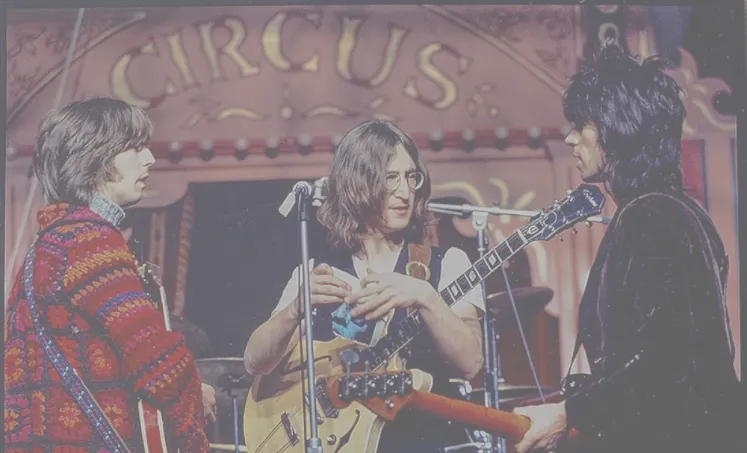For many, Eric Clapton is a legendary guitarist and songwriter whose music has resonated across generations.
However, beyond his extraordinary musical achievements, Clapton's journey toward sobriety is an inspiring tale of resilience, courage, and redemption.
For more than three decades, Eric Clapton has embraced sobriety, conquering addictions that once threatened to derail his career and personal life.
In this article, we delve into Clapton's path to sobriety, exploring the challenges he faced, the steps he took to overcome them, and the impact his journey has had on his life and music.
The Early Years: A Turbulent Beginning

Eric Clapton's rise to fame is well-documented. From his early days with The Yardbirds and John Mayall's Bluesbreakers to the formation of Cream and his successful solo career, Clapton's guitar prowess and soulful voice earned him a place among rock 'n' roll's elite.
However, alongside his meteoric rise, Clapton also faced the dark shadows of addiction.
In the 1960s and 1970s, the rock 'n' roll lifestyle often glamorized substance use, and Clapton found himself caught in this perilous cycle.
His battle with alcohol and drugs, particularly heroin, became all-consuming. The pressures of fame, personal turmoil, and the inherent culture of excess contributed to his deepening dependency.
The Turning Point: A Desperate Plea for Help
The late 1970s marked a particularly dark period in Clapton's life. His addiction had reached its peak, severely impacting his career and relationships.
In a moment of desperation, Clapton publicly acknowledged his struggles and sought help.
This turning point came during a concert in 1976, when he made an impassioned plea to the audience: "Will someone buy me a drink, please?" This raw admission underscored the depths of his addiction and the need for change.
Motivated by the realization that his life was spiraling out of control, Clapton sought treatment for his heroin addiction.
He underwent a period of detoxification and rehabilitation, gradually weaning himself off the drug.
While this marked the beginning of his journey towards recovery, the road ahead was fraught with challenges, particularly in maintaining long-term sobriety.
The Power of Support: Friends and Fellow Musicians

Support from friends, family, and fellow musicians played a pivotal role in Clapton's recovery. The music community rallied around him, offering encouragement and solidarity.
Among them was Pete Townshend of The Who, who had experienced his own struggles with addiction. Townshend's unwavering support provided a lifeline, reminding Clapton that he was not alone in his battle.
In 1979, Clapton found solace and inspiration in the birth of his son, Conor. The responsibility of fatherhood fueled his determination to stay sober and be present for his child.
This newfound purpose became a driving force in his recovery, motivating him to continue his journey despite setbacks.
Embracing Sobriety: The 12-Step Program
A significant milestone in Clapton's sobriety journey was his introduction to the 12-step program of Alcoholics Anonymous (AA) and Narcotics Anonymous (NA).
These programs provided a structured framework for recovery, emphasizing the importance of admitting powerlessness over addiction, seeking support from a higher power, and making amends for past wrongs.
Clapton embraced the principles of the 12-step program, finding comfort in the sense of community and shared experiences.
Regular attendance at meetings and the guidance of a sponsor helped him navigate the complexities of addiction and maintain his commitment to sobriety.
Through the years, Clapton has remained an advocate for these programs, often speaking openly about their role in his recovery.
The Impact of Sobriety on Clapton's Music

Eric Clapton's sobriety has profoundly impacted his music, both thematically and creatively. In the years following his recovery, his songwriting took on greater emotional depth and introspection.
The raw vulnerability that emerged from his experiences infused his music with authenticity and resonance.
One of the most poignant examples is the song "Tears in Heaven," written in the wake of Conor's tragic death in 1991.
The song's haunting lyrics and gentle melody reflect Clapton's grief and longing, offering a glimpse into his heartache. "Tears in Heaven" became one of his most commercially successful and critically acclaimed songs, touching the hearts of millions worldwide.
Sobriety also brought a renewed sense of discipline and focus to Clapton's craft. Freed from the shackles of addiction, he approached music with a clarity and dedication that propelled his career to new heights.
Albums such as "Journeyman" (1989) and "Unplugged" (1992) showcase Clapton's musical evolution and reaffirm his status as one of the greatest guitarists of all time.
Giving Back: Clapton's Commitment to Helping Others
Eric Clapton's journey to sobriety inspired him to give back and support others facing similar struggles. In 1998, he founded the Crossroads Centre, a rehabilitation facility in Antigua.
The center provides comprehensive treatment programs for individuals battling addiction, combining medical care, counseling, and holistic therapies.
Clapton's commitment to the center extends beyond financial support; he actively participates in its operations and frequently visits to offer encouragement to patients.
The center's success is a testament to his dedication to helping others break free from the cycle of addiction and find a path to recovery.
Humor and Real-Life Examples: Finding Light in Darkness
Throughout his journey, Clapton has approached his sobriety with humility and humor. He often shares anecdotes about his experiences, injecting a touch of levity into discussions about addiction and recovery.
One such story involves Clapton's realization that his excessive drinking had led to unusual behavior, including attempting to fish in an ornamental pond inside his home.
This amusing yet sobering moment highlighted the absurdity of his actions and reinforced his resolve to stay sober.
Clapton's ability to find humor in his struggles resonates with many who have faced similar challenges.
His openness and willingness to laugh at himself demonstrate that recovery is not just about overcoming addiction but also embracing life's quirks and imperfections.
A Legacy of Inspiration: Celebrating Three Decades of Sobriety
As Eric Clapton celebrates over three decades of sobriety, his journey serves as an enduring source of inspiration for countless individuals.
His story underscores the power of resilience, the importance of seeking help, and the transformative impact of sobriety on one's life and creativity.
Clapton's legacy extends far beyond his remarkable music career. His advocacy for addiction recovery, his dedication to helping others through the Crossroads Centre, and his candid discussions about his own struggles have left an indelible mark on the lives of many.
Whether through his soul-stirring guitar solos or his compassionate outreach, Clapton continues to touch hearts and inspire change.
A Journey of Redemption and Resilience
Eric Clapton's journey towards sobriety is a testament to the strength of the human spirit and the possibility of redemption.
His unwavering commitment to staying sober, his willingness to share his story, and his dedication to helping others have solidified his status as not only a musical icon but also a beacon of hope.
As we reflect on Clapton's path to recovery, we are reminded that sobriety is a continuous journey, filled with challenges and triumphs.
His story encourages us to seek support, embrace vulnerability, and find light even in the darkest moments.
With three decades of sobriety behind him, Eric Clapton's legacy as a musician and advocate for recovery continues to shine brightly, illuminating the way for others to follow.



